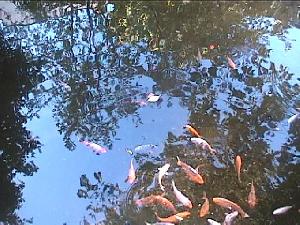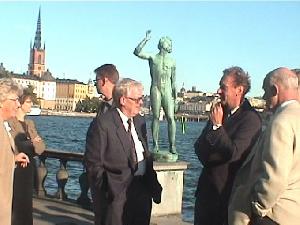Letter from Stockholm
Global Water Partnership
|
|
The Stockholm Symposium is complemented with the Global Water Partnership (or GWP) Consultative Group meeting late in the week as a follow-up to the Second World Water Forum in The Hague in March of 2000. (The first World Water Forum was held in Marrakech in 1997 and the next will be held in Japan in 2003.) The March event had been attended by nearly 6000 people, including some 2000 Dutch citizens, and the Consultative Group's plenary meeting in Stockholm offered the chance to discuss and debate some of the outcomes of the World Water Forum. The privatization of water resources was a particularly sensitive point– nude protestors had disrupted the Hague meeting calling for a stop on privatizing water resources– and GWP participants were keen to stress that they were not promoting privatization as the only solution since each situation had its own unique public and private challenges that had to be dealt with. Another issue that arose out of the March meeting was the need for public participation and inclusiveness; water professionals, like many experts, sometimes fail to involve the public (or in some cases don't see the need for involving them) in water policy and health related issues that may directly impact the daily lives of the citizens. Maude Barlow of the Council of Canadians cited the recent deaths in Ontario related to e coli bacteria contamination of local wells as an example of how privatization has further distanced the public from getting the information they need about their local water system; a private company paid to monitor the wells did notice high levels of e coli but were not required to release the data to the public because it was regarded as "proprietary intellectual property" of the company that the public did not have a right to access. There was general agreement that the imediate and long-term challenges would require an unprecedented interdisciplinary approach to find and implement the solutions. |


